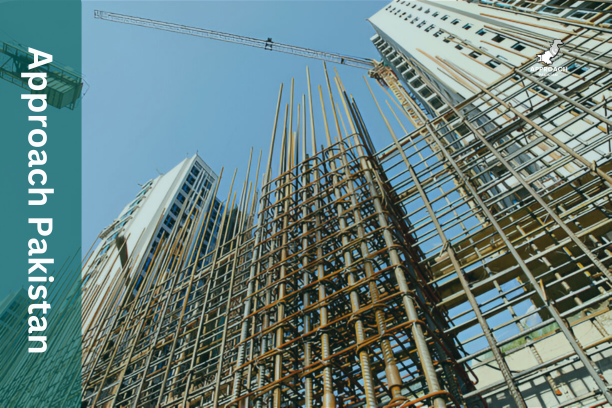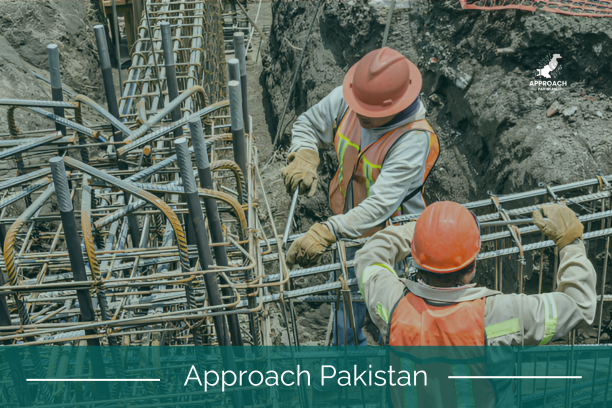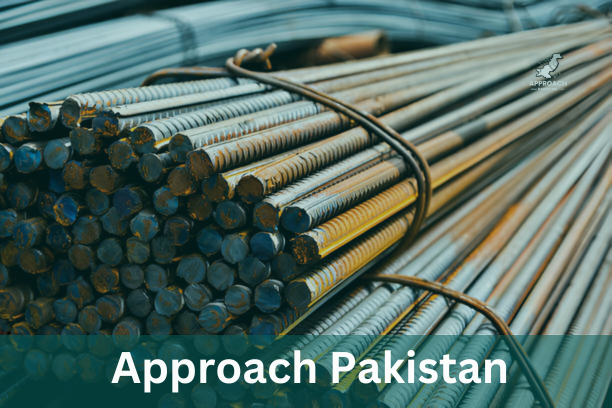Latest Steel Rate Today in Pakistan November 2024
Steel is a crucial alloy made from iron and carbon, known locally as Saria. Today, the rates for steel in Pakistan have increased, with 40-grade costing Rs 258-266 per kg and 60-grade at Rs 260-270 per kg. These prices reflect the current market demand and are updated regularly. Iron rods, or Sarias, are essential in the construction sector, used in building projects for houses and buildings.
The iron market is affected by various factors, including fluctuations in the US dollar rate and petroleum prices. As a builder or investor, staying informed about these details helps in making smarter decisions. The consumption of steel has surged, with many companies now producing and selling this basic metal. It’s vital to keep an eye on the latest list and suggestions for copper rates as well, which can also impact construction work.

Saria Rates Today
As of 12 December 2024, the current Saria prices in Pakistan remain stable, with Grade 40 priced at Rs. 298 per kg and Grade 60 at Rs. 300 per kg.
Read Also : cement rate today in pakistan
Grade 60 & 40 Saria rates
Here you can also check steel rates in kgs and per metric ton below in the table :
Five Star Steel Rate Today
Five Star Steel / saria Iron Rod Prices :
Current Top Branded Steel Prices in Pakistan
Latest Branded Steel Prices is mentioned in the table below :

Local City Wise Steel Price in Pakistan
Latest Branded Steel Prices is mentioned in the table below :
Steel Manufacturing Companies / Mills In Pakistan
There are numerous Steel iron rod manufacturing mills working in different cities of Pakistan.
- Pakistan Steel Mills
- Five Star Steel
- Amreli Steels
- F.F. Steels
- Mughal Steel
- Safa Steel
- Agha Steel
- Ittefaq Steel
- Ittehad Steel
- A.F. Steel
- Chenab Steel
- Maqsood Steel
- Amaan Steels
How to Ensure Steel Quality in Pakistan
When buying steel in Pakistan, ensuring its quality is crucial for a good deal. Here are some important methods to check the grade and authenticity:
- Visual Inspection: Look for uniformity in color and texture. Any visible defects or inconsistencies can indicate poor quality.
- Certification Details: Always ask for the certification from the supplier. This document verifies that the steel meets industry standards.
- Original Slips: Request the original purchase slips from the supplier to confirm that the steel is genuine and sourced from a reputable manufacturer.
- Trustable Buyers: Purchase from well-known companies or dealers with a solid reputation. Trustable buyers often provide better quality assurance.
- Company Verification: Research the company providing the steel. Ensure they have a history of reliability and positive customer feedback.
Precautionary Measures for Steel in Pakistan
When dealing with steel in Pakistan, it’s crucial to follow precautionary measures to ensure defence against potential harm. Here are some tips based on personal experience:
- Helmets: Always wear helmets to protect your head from falling objects.
- Safety Gloves: Use safety gloves to shield your hands from sharp edges and rough surfaces.
- Shoes with Hard Soles: Wear shoes with hard soles to prevent injuries from stepping on sharp or heavy objects.
- Steel Rods Handling: Lift steel rods carefully to avoid accidents and injuries.
- Workers’ Safety: Ensure all workers are trained in safety protocols to minimize risks.

By following these steps, you can maintain a safe working environment when handling steel.
Precautionary Measures for Steel in Pakistan
Pros:
- Fire resistant, providing a fire-safe option for construction.
- Exceptional strength and durability make it ideal for buildings.
- Offers significant versatility and design flexibility.
Cons:
- Good conductor of heat, but not of electricity.
- Heavy, making it difficult to handle, transport, and lift.
- Some types may suffer from corrosion, despite being corrosion-resistant.
- Initial costs can be higher.
Factors Affecting Steel Rates
In my years working with steel in Pakistan, I’ve observed numerous factors affecting rates. Here’s what typically impacts pricing:
- Supply and demand: The construction sector and building industry drive this balance.
- Global influences: Market changes, steel cost, and currency fluctuations play a role.
- Government intervention: Import regulations and friendly policies affect the market.
- Logistical aspects: Transportation costs, shipping, and potential hold-ups matter.
- Economic indicators: Exchange rates and overall economic health are crucial.
- Production variables: Labour costs, manufacturing efficiency, and material costs count.• External factors: Natural disasters can disrupt supply distribution.
Projecting Steel Price Dynamics
As someone who’s been tracking steel rates in Pakistan for years, I’ve noticed that while prices are currently stable, the future trends are far from certain. The outlook depends on several key points. Economic circumstances within the country play a crucial role, as does the global market situation.
From my experience, government policies often have unexpected ripple effects on pricing. For instance, a recent policy shift I witnessed caused a temporary spike in rates before the market adjusted. It’s this interplay of local and international factors that makes predicting future steel prices in Pakistan both challenging and fascinating. Keeping an eye on these elements is essential for anyone involved in the industry.

Regional Steel Price Differences in Pakistan
Steel prices in Pakistan show notable differences across various regions like Punjab, Sindh, KPK, and the Federal area. These variations are influenced by several factors:
- Transportation costs: Distance from major production plants or factories affects the supply distribution and adds to the cost.
- Dealer margins: Local shop pricing strategies can vary, impacting the final market price.
- Government regulations: Different sales tax rates and policies affect pricing.
- Availability options: Some areas might experience a strain on supply due to high demand from ongoing infrastructure initiatives or natural disasters.
- Steel companies’ competition: Multiple companies adjust their pricing based on costs, including energy costs, taxes, and import duties on raw materials.
Understanding these regional dynamics is crucial for stakeholders in the building industry to make informed decisions about purchasing steel.
Final Thoughts on Steel Prices in Pakistan
In Pakistan, the current steel price is influenced by a variety of factors. The US dollar rate and global trends play significant roles in shaping the market, causing fluctuating steel prices. The construction industry heavily depends on steel, with construction projects requiring materials like iron bars and steel rods. The steel rates vary based on the grades of iron, with 40 grades and 60 grades being common. These grades reflect the strength of iron, which is crucial for builders and investors. The prices typically range between 252-260 Rs per kg, depending on factors like the company, dealer margins, and regional price variations.
Steel has largely replaced iron in construction due to its superior strength, durability, and flexibility. It is also more resistant to corrosion and can be easily formed into shapes, making it a widely available and cost-effective choice, despite being slightly more expensive than iron. The market sees regular updates, with prices affected by the balance of supply and demand, as well as local regulations and transportation costs. For those involved in construction, keeping track of these changes through reliable sources is essential to manage costs effectively.

![Sand Price in Pakistan: Latest 2024 Rates [Market Guide]](https://approachpakistan.com/wp-content/uploads/2024/12/3-150x150.png)
![Cement Rate Today in Pakistan -Why Prices Shocked Everyone [2024]](https://approachpakistan.com/wp-content/uploads/2024/09/Untitled-design-150x150.jpg)